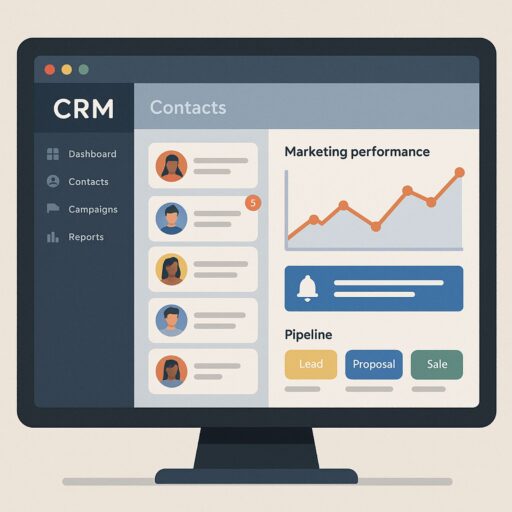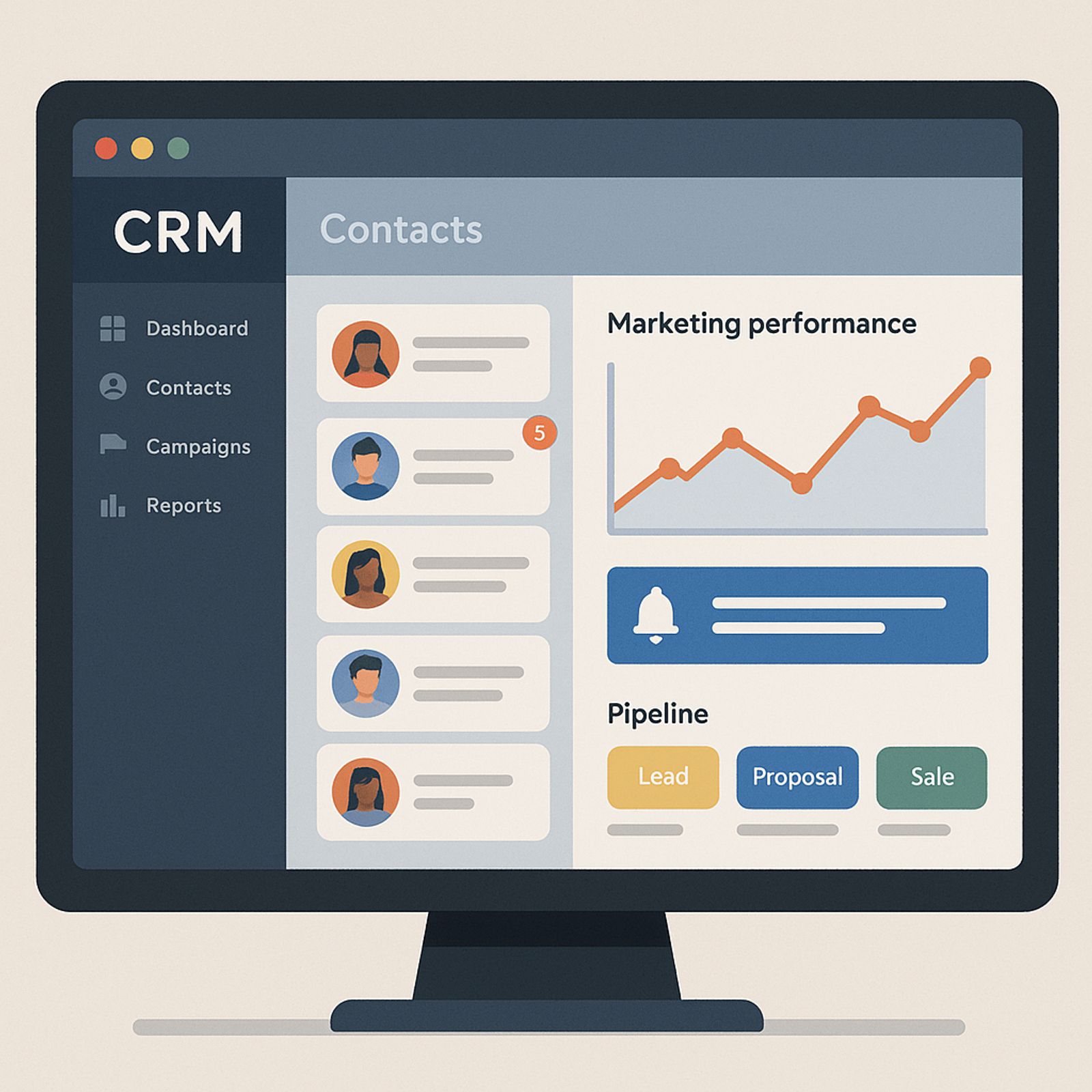A fast-paced, demanding, and multi-tasking industry
Marketing evolves rapidly. In 2025, agencies juggle many clients, projects, tools, and communication channels. Each client expects personalized service, responsiveness, and measurable results. To stay competitive, agencies must manage their operations with precision.
Too often, data is scattered—briefs in emails, contacts on LinkedIn, documents in Google Drive, tasks in Trello, and quotes in Excel. This lack of centralization reduces productivity and weakens professionalism.
That’s where a CRM comes in.
Specific challenges for marketing agencies
Unlike an internal marketing team, agencies handle multiple accounts simultaneously. Each client has different goals, channels, lead types, timelines, and budgets. It’s essential to track each project’s history, communications, results, and upcoming deadlines.
A good CRM allows you to:
- Track leads from first contact to signature
- Manage active campaigns per client
- Log all exchanges (briefs, feedback, validations)
- Centralize decision-maker contact info
- Anticipate contract renewals or upsells
Common mistakes without a CRM
Here are frequent issues seen in CRM-less agencies:
- Multiple team members contact the same lead without coordination
- Key details (goals, tone, budget) get lost in emails or Slack
- A hot prospect isn’t followed up due to missing reminders
- Campaign performance reports are buried in outdated spreadsheets
- A project manager leaves with all the client knowledge
These problems damage client perception and hinder loyalty.
What a well-configured CRM changes
A CRM tailored for marketing transforms how an agency works. It enables:
- A clear view of the sales pipeline: where is each lead?
- Precise tracking per client: who said what, when, and about what?
- Automated planning of follow-ups, renewals, or upsells
- Integration with Google Workspace, Slack, or ClickUp
- A shared, centralized database—useful even with turnover
For example, an agency managing 20 active clients can use the CRM to trigger automated reminders 15 days before contract end. The result: improved client retention and recurring revenue.
What about small agencies?
Even solo consultants or small teams benefit from a micro CRM. Tools like NextLead help structure contacts, track leads, and automate follow-ups while integrating with Gmail, Notion, or Google Sheets.
With a few clicks, you can build a custom workflow:
- Online contact form
- Zapier integration to auto-create CRM contacts
- Automatic welcome email
- Follow-up 3 days after an unsigned quote
Key figures that speak for themselves
According to a recent HubSpot study, businesses using a CRM see a 30% boost in conversion rates and a 40% increase in customer loyalty. For marketing agencies, this means more signed deals and fewer lost opportunities.
Conclusion
In 2025, a CRM isn’t a luxury for marketing agencies—it’s a must-have. It structures operations, strengthens client relationships, improves team efficiency, and boosts revenue. Whether you’re a 3-person shop or a 50-person agency, the right CRM saves time, enhances your brand, and lets you focus on what you do best: creating real impact for your clients.












